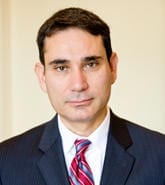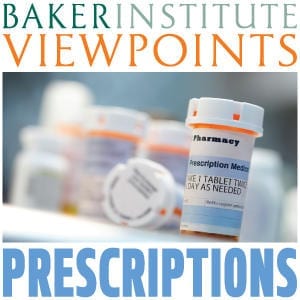The drugs of choice for an increasing number of Americans are prescription painkillers. Nowhere is the problem more apparent than Houston, where the renowned medical center area has become “a national hotspot for prescription drug abuse,” according to a recent story in the Houston Chronicle. The paper reported in November that a Drug Enforcement Administration operation dubbed “King of the Pill” shut down “pill mills” in raids that were the culmination of an eight-month investigation involving 14 state and local agencies. As policymakers grapple with how to address this growing problem — including a quiet reassessment of U.S. policies that focus on keeping illegal drugs out of the country — drug policy experts at the Baker Institute ask: What does rising prescription drug abuse mean for the “war on drugs”? In the second of three posts in this installment of Baker Institute Viewpoints, Tony Payan, the visiting Baker Institute Scholar for Border and Immigration Studies, examines how our approach to prescription drug abuse can inform how the U.S. deals with illegal drugs.
We’re all familiar with the “war on drugs,” which usually focuses on illegal substances such as cocaine and heroin. But a recent study by the National Institute on Drug Abuse shows an increasing number of Americans are abusing legal or prescription drugs — especially teenagers. What lessons can prescription drug abuse teach us about the way we deal with illegal drugs in the United States? I can think of several.
First and foremost, few would view prescription drug abuse as anything other than a domestic problem. While marijuana, cocaine and heroin use has an international component, the abuse of prescription drugs is largely home-grown. Second, few, if any, policies can be successfully enforced when the protection and disposal of leftover prescription drugs is a matter handled in one’s home. Laws penalizing, for instance, parents if a teenager gets hold of their prescription drugs would be considered too intrusive. Third, the abuse of legal drugs suggests an important “exit” to the war on drugs — in other words, viewing the problem of drug addiction as a public health problem and not as a criminal issue.
Clearly, individuals who abuse drugs require not prison or punishment, but mental and health care. After all, an addiction to drugs shares similarities to addictions to food, alcohol, shopping or sex. If our daughter, son, father or mother told us that they have any of these latter addictions, the last thing we would think of is calling the police; we would instead seek health care and counseling for them. Why should a drug addiction — to marijuana, cocaine, heroin, etc. — be any different? We should involve health care providers, relatives, teachers, pastors and anyone who can help understand the source of the addiction; our objective should be to free the individual from the hold of a compulsive habit.
The more pernicious side of the drug world — i.e., the production, trafficking and dealing of drugs — with all the violence it produces, would necessarily decrease and, in many places, disappear if we approached drug abuse as a problem of mental health.
The lessons gained from the war on illegal drugs are many, and can help us work out a different way of dealing with addiction — one that relies more on helping, rather than punishing, the addict; one that focuses on reducing harm and the size of the drug market, thus ending the gravitational pull it has on the criminal underworld. In the process of doing so, we might just create a better, more caring society.
 Tony Payan is the visiting Baker Institute Scholar for Immigration Studies.
Tony Payan is the visiting Baker Institute Scholar for Immigration Studies.
